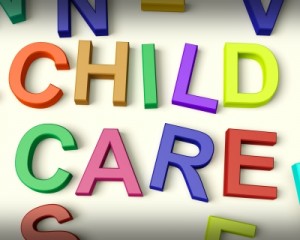 What does this really mean for you?
What does this really mean for you?
This is such a BIG topic and it’s not possible to answer every question here. I’m not your insurance specialist, I am your Income Tax Audit Specialist. Here is the introduction to this new tax wrinkle that may impact your current and future tax returns.
The healthcare coverage you currently carry for yourself and your family may be all you need. If you have what is called Minimum Essential Coverage, you probably don’t have to do anything.
But if you go without coverage for any part of the year, there are special rules that apply. If you don’t qualify for an exemption, you may need to make a special payment called an Individual Shared Responsibility Payment.
Who qualifies for an exemption? Those who…
- Do not have to file a tax return
- Do not have access to affordable health care
- Are a member of certain exempt groups
- Are suffering a hardship.
- Have other situations as shown at www.IRS.gov/aca
If you and your dependents do not have coverage and do not qualify for an exemption, then you may have to make a “shared responsibility” payment when you file your tax return.
This payment is either a percentage of your income or a flat dollar amount, whichever is greater. The payment is based on the number of months you go without coverage, or the number of months you are exempt.
If you get your health insurance coverage through the Health Insurance Marketplace, you may be eligible for the Premium Tax Credit. This can help people with moderate income more easily afford the coverage.
If you meet the following requirements, there is a Premium Tax Credit:
- Your income must be within certain limits
- You must not be eligible for other coverage through an employer or government plan
- You cannot be claimed as a dependent on someone else’s return
- You cannot file your tax return using the Married Filing Separate status
When you apply for coverage through the Marketplace, you can choose to get the credit now or you can choose to get the credit later. If you choose to get the credit now, you are asking the marketplace to pay some, or pay all of the estimated credit in advance, directly to your insurance company. That will help lower your out of pocket premium costs. If you choose to get the credit later, you take that credit on your income tax return.
If you choose the advance payment, to get the credit now, be sure to report changes in your income or changes in your family size. Report these changes when they happen to ensure you are getting the correct amount of advance credit. This is important, because getting too much or getting too little credit can affect your income tax return refund or balance due.
I still get my insurance from a private insurance company. There is a lot to learn about ObamaCare and income taxes. In next week’s article, I will address the time line for getting coverage now for next year.
 Does the fear of paying too much tax drive you to buy more deductions?
Yes, I said “BUY” deductions. They do cost you money, you know.
Did you know that our government has a FREE deduction for most of us?
That free deduction is called the STANDARD deduction. I say it’s ” free” because you don’t have to spend a dime to claim this one. The amount of your standard deduction does change from year to year and is based on your filing status. Single, Married Filing Jointly, Married Filing Separately, Head-of-Household status – each one has a different standard deduction.
There are various categories of deductions that are allowable on 1040 tax return form Schedule A, Itemized Deductions. These different categories are:
Does the fear of paying too much tax drive you to buy more deductions?
Yes, I said “BUY” deductions. They do cost you money, you know.
Did you know that our government has a FREE deduction for most of us?
That free deduction is called the STANDARD deduction. I say it’s ” free” because you don’t have to spend a dime to claim this one. The amount of your standard deduction does change from year to year and is based on your filing status. Single, Married Filing Jointly, Married Filing Separately, Head-of-Household status – each one has a different standard deduction.
There are various categories of deductions that are allowable on 1040 tax return form Schedule A, Itemized Deductions. These different categories are:









